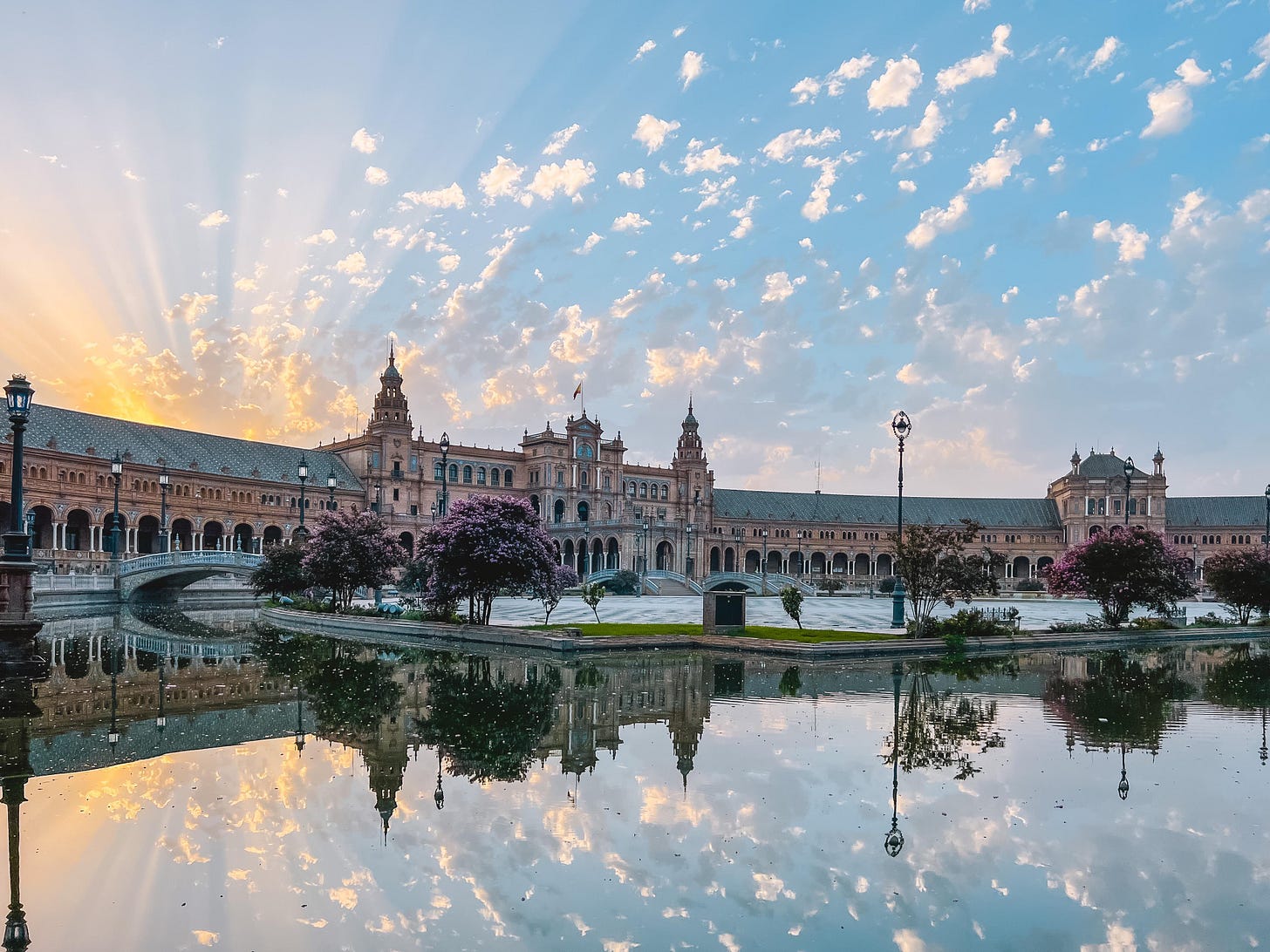¡Hola, hola!
Esta semana vamos a explorar palabras que los hispanohablantes usamos con total naturalidad… pero que son muy difíciles de traducir directamente al inglés.
This week, we're going to explore words that Spanish speakers use naturally… but that are very hard to translate directly into English.
La última describe lo que más me gusta hacer cuando estoy en España.
The last one describes my favorite thing to do when I'm in Spain.
🇪🇸 3 verbos sin traducción directa
1. Amanecer - the sun rises
Amanece a las 6 de la mañana. - The sun rises at 6 a.m
Hoy amanecí cansada- Today I woke up feeling tired.
2. Madrugar - to wake up early
Mañana tengo que madrugar. - Tomorrow I have to wake up early.
3. Estrenar - To do something or to wear something for the first time
Hoy estreno zapatos nuevos. - Today I'm wearing new shoes for the first time
Mañana estrenan mi película favorita - My favorite movie comes out tomorrow.
📘 2 nombres
1. Anteayer - the day before yesterday.
Fui al médico anteayer.
I went to the doctor the day before yesterday.
2. Morriña - the sense of homesickness.
Desde que vivo fuera siento una morriña tremenda.
Ever since I moved away, I’ve felt incredibly homesick.
🍷 1 concepto cultural: La sobremesa
Después de comer, en muchos países hispanos, no te levantas de la mesa. Te quedas charlando, compartiendo, relajado. Eso es la sobremesa y puede durar horas y horas.
After lunch, in many Spanish-speaking countries, you don’t get up from the table. You stay there chatting, sharing, and relaxing. That’s la sobremesa — and it can last for hours.
Ya no hay comida, quizá un café y algún dulce.
There’s no more food, maybe just a coffee and something sweet.
Y esto es todo por hoy. Espero que estés listo para el verano.
Yo ya llevo una semana de vacaciones y mañana me voy a San Diego, en California, a disfrutar del sol y a celebrar mi cumpleaños.
Hasta pronto,
Irene






*Amanecer* gives me troubles, so I don't try to use it. Your explanation helps.